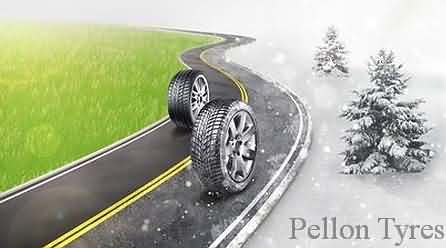Table of Contents
Winter Tyres versus Summer Tyres

Winter Tyres versus Summer Tyres
Fore more videos visit: http://www.autoexpress.co.uk/videos/
Of course many people are visual. Including myself. So this is the reason that I include some videos in my blog posts.
British motorists tend to run summer tyres on their cars all year round, regardless of the weather. However, as our exclusive comparison test shows, this can be very dangerous.
We headed to Sweden where snow and ice is guaranteed. To point out the often overlooked. Comparing, the performance of Winter Tyres versus Summer Tyres and the results were quite shocking.
The primary differences between Winter Tyres and Summer Tyres
There are two types of tyres that are frequently used: Winter Tyres versus Summer Tyres. Despite their apparent similarity, they actually differ significantly in a number of important ways, making them appropriate for various seasons.
Winter Tyres
Summer tyres are intended to be used in temperatures above seven degrees Celsius. They have a tougher rubber composition that offers higher traction on dry surfaces.
Summer tyres have narrower tread patterns, which reduce rolling resistance, increase fuel efficiency, and lessen road noise. Summer tyres are also more responsive and provide superior handling, making them perfect for driving in a dynamic manner.
Seasonal tyres
Winter tyres are intended for use in settings where the temperature is below seven degrees Celsius. They offer superior traction on snowy and icy roads since they are constructed of a softer rubber compound that keeps its flexibility in freezing temperatures.
Winter tyres include deeper tread patterns with sipes, which serve to create more biting edges and increase traction on slick terrain. Moreover, winter tyres are made to divert water and slush, lowering the possibility of aquaplaning.
Winter Tyres versus Summer Tyres: have major differences.
Rubber Substance
The rubber compound used in the production of summer and winter tyres is the primary distinction between them. Winter tyres are comprised of a softer rubber compound that remains malleable in subfreezing conditions and offers better traction on snowy and icy roads. Summer tyres are built of a stronger rubber compound that offers more grip on dry roads.
Tread Design
The tread pattern is another key distinction between summer and winter tyres. The narrower tread patterns of summer tyres minimise rolling resistance, increase fuel efficiency, and quiet the road. Winter tyres, on the other hand, contain sipes and deeper tread patterns, which contribute to stronger biting edges and better traction on slick conditions.
weather circumstances
Winter tyres are made to be used in colder weather, whereas summer tyres are made to be used in warmer climates. Winter tyres work best when it is below 7 degrees Celsius, whereas summer tyres work best when it is above 7 degrees Celsius.
Driving Capability
Summer tyres are good for athletic driving since they have improved handling and are more responsive. Winter tyres, on the other hand, offer higher traction on snowy and slippery roadways, increasing overall safety in chilly weather.

Conclusion
In conclusion, both summer and winter tyres have distinctive qualities that make them appropriate for various weather situations and seasons. Winter tyres are built for cold weather and offer better traction on ice and snowy roads, while summer tyres are made for warm weather and offer better traction on dry roads.
You may choose the best tyres for your automobile, ensuring the best driving performance and safety, and choose the proper tyres by being aware of the differences between winter tyres and summer tyres.
Even here in the UK we just dont know what the winter will throw at us? here at Pellon tyres in Halifax UK, we can recommend some good winter products, through experience and customer satisfaction.
- Hello tyres, world: Winter Tyres blog
- Effectiveness-Winter Tyres
- Winter Tyres versus 4×4
- Mercedes-Benz Switching Winter Tyres
- Winters Tyres Compared to Summers
- Hello tyres, world: Winter Tyres blog - April 21, 2025
- Effectiveness-Winter Tyres - April 20, 2025
- Winter Tyres versus 4×4 - April 19, 2025
